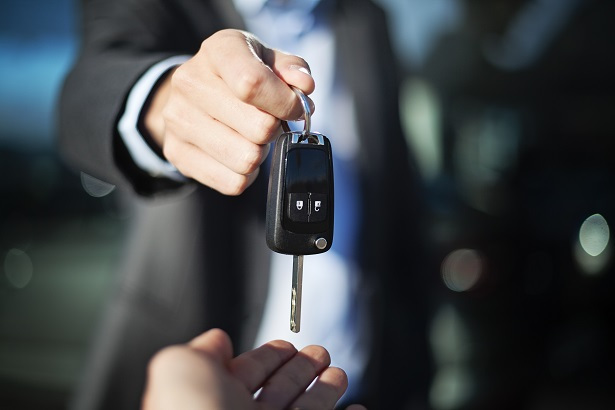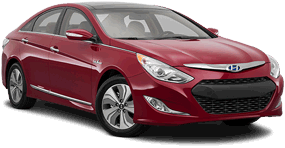Buying a used car from a private seller offers perks like a lower average sale price and the ability to bypass some extra dealership fees. Despite the lower price, many car shoppers aren't able to cover the purchase in cash. This is where a private party auto loan comes in. Although private auto loans differ from financing a car you buy from a dealer in some ways, there are also many similarities. We’ll cover the private auto loan process, the pros and cons, and what to do if the seller is still paying off their own car loan.
Private Auto Loan Process

A private party auto loan means you'll secure financing to buy a used car from a private seller instead of a dealership or a car auction. Just like getting a car loan for a dealership purchase, the process of securing a private party car loan will require an application and credit check. A down payment and pre-approval are also advised, especially for those without an excellent credit score. Once approved, the car shopper will be offered an annual percentage rate and a fixed loan term which will determine their monthly payment.
Where do you go for this type of loan? Private party car loans can be secured from a bank, credit union or online lender. Only the dealership financing option won't be available since you're not buying from a dealer. Shoppers with bad credit can start with their credit union or get pre-approved by online lenders to compare APR rates and choose the lowest possible rate.
There are some distinctions between a private party auto loan and a loan for a dealership purchase. The available loan terms will usually be shorter for a private auto loan with a range between 12 and 48 months. When it comes to loan approval and the interest rates, the age and mileage of the car will be scrutinized even more than when a car is purchased from a dealer. You may also find that the interest rates will be slightly higher when buying from a private seller.
Get Pre-Approved for an Auto Loan Today
Pros and Cons

We mentioned the benefits of buying a car from a private seller instead of a dealership such as getting a lower price on comparable used vehicles. There are also some perks to financing this type of car purchase but you should weigh them against the drawbacks before moving forward.
Pros
Since you won't be utilizing the dealership's financing services, you won't be subjecting yourself to their financing fees. Usually, the process to get approved for a private car loan is quick and seamless unless there is something about the vehicle that the lender needs to investigate further such as a major accident in its collision history.
Cons
The biggest drawback to a private party loan is that the APR rates are typically higher than they would be for a dealership sale. This is because there is more risk involved in a private car loan than a standard dealer sale. Just as with any car loan, the interest rates will depend on the credit score of the car buyer, but the lender will also be more likely to take into account the age and condition of the vehicle. As with most car financing options, the loan will be secured and your car can be repossessed if you don't make your payments on time. Finally, if you find out the seller is still paying off their own loan on the vehicle, the transaction becomes more complex.
What if the Seller Has An Outstanding Loan?

If the car's seller is still paying off their loan, there will be additional steps involved to transitioning the vehicle. According to Carfax, you can check to see if there are any outstanding loans on the vehicle you're considering by obtaining the car's VIN and running it through a search on the DMV's website.
Let's say you discover that the seller has an outstanding loan on the vehicle. The easiest course of action will be for him or her to pay it off before you purchase the car. This isn't always a possibility, however, and if the seller isn't able to pay off the vehicle, the transaction becomes a little more complicated. Luckily, most private sale lenders can work with the seller's lender to arrange for the transfer of the loan into the buyer's name. In some cases, an escrow service can make the transaction safer for both parties but there will be extra fees involved.


